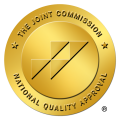Signs of Functional Alcoholism in Your Staff
What is Alcoholism?
Alcoholism is a dependency or preoccupation with drinking and becoming drunk. Individuals suffering from alcoholism may require the substance to sleep, feel happy, or function in their day-to-day lives. Over 100 million people worldwide are classified as “alcoholics.” The number is likely much higher as some individuals excel in hiding their dependency.1
What Constitutes a Drink?
An alcohol drink can have several definitions, as it will vary depending on the type of alcohol as well as factors of the drinker such as their gender, weight, metabolism, etc. Generally, a drink is defined as 12 fluid ounces of beer or wine cooler, 5 fluid ounces of wine, and 1.5 fluid ounces of 80-proof hard liquor, such as gin, whisky, or rum for a mixed drink.2
The alcohol consumption recommended for each biological sex is two drinks a day for men and one drink a day for women.
What is Heavy Drinking?
A heavy drinking problem is consuming more than five drinks in a 2–3-hour span. Heavy drinking also implies frequent alcohol consumption and a reliance on alcohol to have fun. Heavy drinking can cause several health complications and long-term consequences.What Does it Mean to be a Functional Alcoholic?
The answer to what is a functional alcoholic is simple. A functional alcoholic is a person with an alcohol dependency issue that still maintains their responsibilities in a seemingly normal manner. This problem can resemble drinking all night and going to work in the day or drinking throughout the day in secret.
Functional alcoholism is not a diagnosis, although alcoholism is diagnosable. However, a functional alcoholic can be a misleading term. More individuals with an alcohol addiction cannot hold down gainful employment and handle family responsibilities. Functional alcoholics, however, are essentially people struggling with alcoholism who need rehabilitation.
A key sign of being a functional alcoholic is being able to hide alcohol dependency from coworkers and family. However, over time, alcoholism will progress to a point where it can no longer be hidden. Waiting until the breaking point to seek treatment for dependency increases the risk of health complications.3
Signs of a Functional Alcoholic in the Office
- Behavior: Behavioral changes due to alcohol dependency include irritability, sluggishness, confusion, and being heavily preoccupied. In a work environment, it can include not contributing to projects or being standoffish to coworkers. Frequent tardiness, when combined with other signs, can also be an indicator of alcoholism.
- Quality of Work: Quality of work diminishes due to reduced mental performance. This decreasing quality may appear as a steady downward trend or increased complaints from coworkers and customers. As the dependency progresses, a person will place their job further down their list of priorities. The exception to this rule is when the job is tied to drug use. For example, a person who has an expensive drug habit may be more motivated to keep a well-paying job.
- Physical: Physical changes from alcohol dependency include weight changes, bloating, yellowing eyes, and a disheveled appearance. There is also a higher risk of heart, liver, kidney, and brain diseases.
Signs of a Functional Alcoholic in Personal Life
These are the most common signs of alcoholism in a friend or family.4- Behavior: Behavioral changes in friends and family involve a waning interest in hobbies and priorities. For example, an athletic family member may cease going to the gym due to being hungover.
- Failing Responsibilities: Eventually, alcoholism causes a person to forgo their responsibilities in favor of drinking. This problem can include forgetting to pick up children, pay bills, or complete routine tasks such as cooking dinner.
- Physical: In spouses, physical changes can include reduced libido. In family and friends, it can appear as weight changes and the disheveled appearance mentioned above.
How High-Achieving Functional Alcoholics Get Work Done

High-functioning alcoholics maintain their workloads only by hiding their alcoholism. Alcoholism will inevitably contribute to the declining work quality. Until the progression reaches its breaking point, alcoholics typically employ the following methods.
- Working Sober: Functional alcoholics may limit their drinking problem to after working hours. They may also use the ability to work sober to fuel their denial about alcoholism. It may sound something like, “I only drink after work, therefore, I’m not an alcoholic.” Adding modifiers such as only drinking during certain times allows them, from their perspective, to bypass the fact that they drink frequently.
- Excuses: Those struggling with functional alcoholism may offer a series of excuses to divert attention away from their drinking problem. Excuses such as sickness, death, traffic, etc. will pop up far more frequently than sober employees.
- Lack of Work: Simply put, some jobs are more physically and mentally strenuous than others. If a high-functioning alcoholic finds themselves in a low visibility, low responsibility job, it allows them to go under the radar.
- Caffeine: High functioning alcoholics may develop an additional dependency on stimulants to counteract the tiredness associated with alcoholism.
Who is Most Likely to be a Functional Alcoholic?
Risk Factors
Multiple factors can cause alcohol or substance dependency. The most common include:Low Income
People that live on the poverty line have a higher chance of developing dependency. Lower wages correlate to poor mental states, less access to recovery spaces, and lower education levels. The wide availability of alcohol also plays a factor as people may develop addictions for a perceivable lack of more fulfilling options.5Culture
Certain cultures, such as military culture or college culture, strongly encourage drinking. Cultural pressures often go deeper than mere peer pressure, as growing up in or around a drinking culture can shape a person’s viewpoints on acceptable drinking levels. For example, growing up in a family that likes to engage in excessive drinking during sporting events can cause a person to perceive binge drinking as normal under set circumstances.Genetics
Some individuals are genetically inclined to have addictive tendencies. For these people, dependency in various forms may run in the family. This aspect is a leading reason why dependency is viewed as a disease instead of a lack of character. Genetic dependency is a lifelong factor like other genetic traits such as mental illness or reduced bodily functions.Negative Mental State
Depression, anxiety, and work burnout can increase the risks of developing alcohol dependency. Individuals suffering from long-term depression or stress have higher levels of white matter, resulting in poor decision making and a litany of connected health complications. People that drink due to a poor mental state create a circular routine in which they drink to feel good but cannot feel good without excessive drinking.How to Treat Functional Alcoholism
Detox
Those struggling with active substance use may require detox in a medical environment. Detoxing involves purging the substance from the body and administering medicine to counteracts the harsh effects of withdrawal, such as seizures or severe confusion.
Medication-Assisted Treatment
Medication-assisted treatment, or MAT, involves doctors prescribing long-term medication to help with symptoms of depression or anxiety. Other forms of MAT include drugs given to counteract withdrawal and cravings.
Therapy
Therapy in some form is a necessity for someone in recovery, especially early stages. The most common forms of recovery therapy are:- Cognitive-Behavior Therapy: CBT helps uncover the patient’s habits and mental states associated with drug use. The therapy gives patients the chance to be more aware of and in control of their emotional triggers.
- Trauma Therapy: Trauma, both physical and emotional, has long-lasting effects. Dependency stemmed from trauma can be overcome by dealing with memories.




